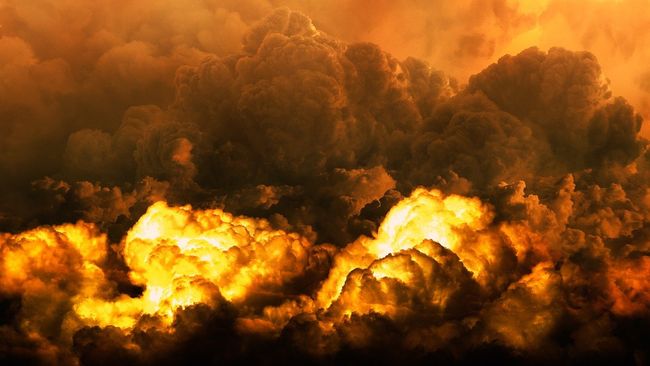The role of the man who foresees is a sad one

The role of the man who foresees is a sad one. He afflicts his friends with warnings of the misfortunes they court with imprudence. He is not believed; and when the misfortunes occur, those same friend resent him for the ills he predicted.
Nicolas Chamfort
Chamfort was writing around the time of the French Revolution. This was a period where everything went (dangerously, murderously) sideways for a bit, before the status quo re-emerged with different rulers.
We tend to think that life is somehow ‘safer’ or more ‘stable’ these days, but the ideological collapse that caused the French Revolution is perhaps more evident in 2021 than it was in 1789.
Things break down when groups within societies fundamentally differ about ontology, epistemology, or ethics. The result is a form of militant tribalism, where each tribe believes that another is stopping them saying or doing particular things. The ‘others’ pose some kind of threat to ‘our’ way of life.
In reality, the biggest threat to societies, wherever you are in the world, is climate change — or as I’ve begun to call it for the sake of emphasis, ‘human extinction’. After all, the planet was fine before us, and will be fine after us. The Arctic was a jungle 55 millions years ago. Needless to say, that meant global temperatures would not have been conducive to human life.
Carbon emissions may have decreased dramatically due to the pandemic lockdowns we’ve experienced over the last year, but recent reports suggest that we would need a similar lockdown every two years to stop runaway climate catastrophe.
It’s not the cheeriest news, but then we need a complete mindshift in order to save our species. Anyone who’s read Jared Diamond’s book Collapse: How Societies Choose to Fail or Succeed will be aware that globalisation makes it impossible for modern societies to collapse in isolation. Our supply chains are more fragile than we think.
I have often asked myself, “What did the Easter Islander who cut down the last palm tree say while he was doing it?” Like modern loggers, did he shout “Jobs, not trees!”? Or: “Technology will solve our problems, never fear, we’ll find a substitute for wood”? Or: “We don’t have proof that there aren’t palms somewhere else on Easter, we need more research, your proposed ban on logging is premature and driven by fear-mongering”? Similar questions arise for every society that has inadvertently damaged its environment.”
Jared Diamond, Collapse
So what are we to do in the face of all this? One thing I’d encourage you to do is to read the Deep Adaptation paper from 2018 by Prof. Jem Bendell. The books by Dark Mountain are also worth paying attention to, particularly Walking on Lava: Selected Works for Uncivilised Times.
Ultimately, we all need to do something. We can’t shrug and say “hakuna matata” until everything burns down around us.
[I]t’s perfectly normal for people to want to live a good life right here and now, no matter what the future holds. It’s certainly stupid to work like crazy towards a future that doesn’t exist. That’s definitely insane. But working towards a present that can exist is but such a bad idea at all.
Dmitry Oblov, ‘A Present That Can Exist’ (in Walking on Lava)
I know that, personally, I’ve ignored all of this for too long. Yes, I got involved in the climate change protests a couple of years ago, but other than stopping eating meat I haven’t made meaningful changes in my everyday life.
I’m not exactly sure what my next steps will be, but I’m going to see whether Extinction Rebellion‘s approach of non-violent direct action might be the right path forward for me. I’ve got to do something.
This post is Day 92 of my #100DaysToOffload challenge. Want to get involved? Find out more at 100daystooffload.com. Image via Pixabay.
